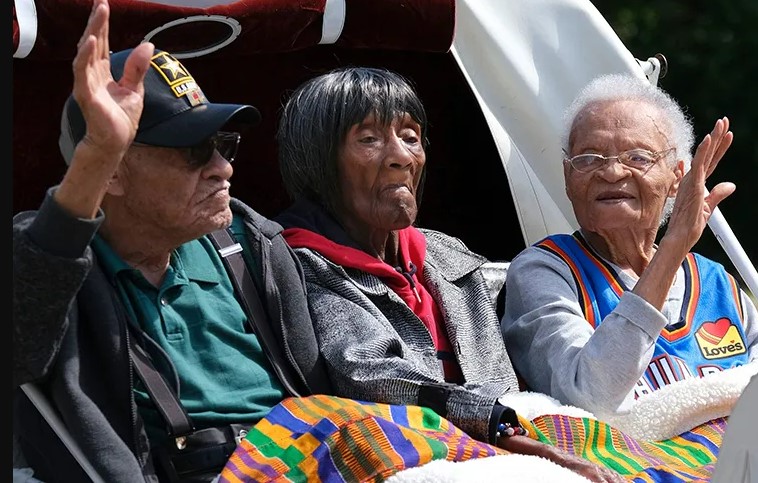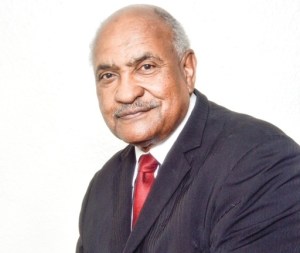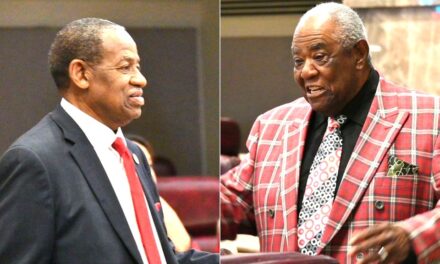by Bria Overs,
Word In Black
The fight for reparations and justice isn’t over. The legal counsel and living survivors of the 1921 Tulsa Race Massacre plan to appeal after an Oklahoma judge threw out the lawsuit on July 7.
Lessie Benningfield Randle, 108, Viola Fletcher, 109, and Hughes Van Ellis, 102, filed their suit in September 2020, seeking accountability and reparations for the racial attack on the historic Black neighborhood of Greenwood in Tulsa, Oklahoma.
Judge Caroline Wall of the Tulsa County District Court dismissed the case with prejudice, meaning the decision is final, and the survivors and their legal counsel cannot refile or retry their particular case. Appealing to the Oklahoma Supreme Court is the only recourse available to move their fight forward, which their attorney, Demario Solomon-Simmons, says they plan to do.
In a press conference on July 10, Solomon-Simmons read a statement responding to the decision on behalf of the three survivors, Randle, Fletcher, and Ellis.
“Despite Tulsa and America’s attempt to silence change and gaslight the facts and truths of our collective racial history and trauma, we, as survivors and all of those that believe in racial justice, will not sit quietly or passively to allow mistruths or injustice to persist.” – STATEMENT FROM THE SURVIVORS
In the spring of 1921, a white mob destroyed the neighborhood, burning over 1,250 homes and 70 businesses, and killing over a hundred Black residents. It marked the end of the success of Black Wall Street.
According to the recent suit, the massacre was a public nuisance under Oklahoma law. A press release from Justice for Greenwood, a network advocating for justice on behalf of survivors and descendants of the massacre, states that the damage caused during the massacre is “estimated to be approximately $200 million in today’s dollars.”
While the decision to throw out this case is disappointing, other recent battles for restitution have reached success.
Nearly 100 years ago, the city of Manhattan Beach in Los Angeles, California used eminent domain, a power governments have to turn private property into public use, to take Charles and Willa Bruce’s ocean-front property. In 2022, Los Angeles County returned the deed and property known as Bruce’s Beach to descendants Marcus and Derrick Bruce.
Earlier this year, the family sold the land back to the county for $20 million.
The Bruce’s case was a major win but also a rarity. This is why experts William Darity and A. Kirsten Mullen believe reparations should ultimately be an issue solved by the federal government.
“We, the federal government, absolutely do have the capacity to pay large sums without a tax burden on United States citizens,” Mullen previously told Word In Black. “We’re not pushing for taxing Americans to pay the reparations debt — and we do see it as a debt, not charity. This is a debt owed to Black American citizens since the end of the Civil War.”
While possible, it’s unlikely this will happen in the lifetimes of the survivors of the Tulsa Race Massacre. With so few options, they opted for fighting for it at the level of government that’s supposed to bring justice: the courts.
The statement on behalf of the survivors continues, “Judge Wall strikingly backpedaled on her prior order permitting us, the three living survivors of the massacre, to proceed with our public nuisance litigation seeking justice for the continuing harms of the massacre. Without a doubt, Judge Wall failed to review this case within the scope of well-established black letter Oklahoma law.”
Wall previously ruled against the defendants, the City of Tulsa, Tulsa Chamber of Commerce, Tulsa Development Authority, and other local government departments, and their motions to dismiss the case.
“But we will not go quietly,” Solomon-Simmons said as he read the survivor’s statement.
“We will continue to fight until our last breaths. Like so many Black Americans, we carry the weight of intergenerational racial trauma day in and day out.” – STATEMENT FROM THE SURVIVORS
“The dismissal of this case is just one more example of how America’s, and specifically Tulsa’s, legacy of racial harm and racial distress is disproportionately and unjustly borne by Black communities and Black individuals like ourselves.”
The post Survivors of the Tulsa Race Massacre say their fight is not over appeared first on AFRO American Newspapers .











